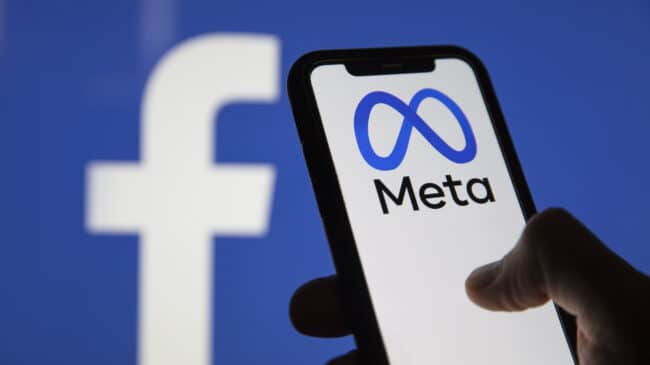The Federal Trade Commission’s (FTC) bid to block Meta Platforms, Inc. from acquiring Within, designers of the virtual reality fitness app Supernatural, began in a San Jose court on Dec. 8. The three-week hearing is expected to test the FTC’s argument that potential future concentration in the still-developing market for virtual reality fitness applications is enough to stall the merger of Meta and Within.
Federal Trade Commission Chairwoman Lina Khan, tapped by President Joe Biden to lead the agency last year, hopes to preside over the most significant change of course for U.S. antitrust policy in decades. She and others belonging to the New Brandeisian school of antitrust advocate a more aggressive stance toward mergers than has been seen in decades. This advocacy is making the FTC’s case against Meta a case to watch as it may offer a preview of the FTC’s new strategy, as well as its potential success in court.
When Facebook rebranded as Meta in Oct. 2021, the company signaled a change in its strategic outlook. Meta began investing heavily in virtual reality (VR) technology, which is expected by many to grow rapidly over the next decade. Today, Meta has already entered markets for VR hardware, social platforms, and games. As part of that strategy, Meta announced last year that it would acquire Within, developers of the VR fitness app Supernatural, for $400 million. A large tech company acquiring a niche startup in a nascent, fast-developing market is not an unusual event. Along with fitting Meta’s strategy, startups like Within often consider such buyouts successful outcomes of their entrepreneurial ventures.
The Federal Trade Commission’s July 2022 announcement that it was blocking the acquisition reflects the more aggressive antitrust approach Khan is taking. The FTC press release says:
The complaint alleges that Meta is a potential entrant in the virtual reality dedicated fitness app market with the required resources and a reasonable probability of building its own virtual reality app to compete in the space. But instead of entering, it chose to try buying Supernatural. Meta’s independent entry would increase consumer choice, increase innovation, spur additional competition to attract the best employees, and yield other competitive benefits. Meta’s acquisition of Within, on the other hand, would eliminate the prospect of such entry, dampening future innovation and competitive rivalry.
This theory of harm departs significantly from the consumer welfare standard, which Khan and fellow advocates of antitrust reform blame for a more permissive stance on mergers in the past several decades. The FTC’s theory of harm to future competition in the potential market for virtual reality fitness apps applies similar logic: fewer competitors and higher market concentration lead to higher prices. But the traditional consumer welfare standard refers to actual consolidation and competition in existing, definable markets. The FTC’s future-competition theory is an exercise in speculation.
The Federal Trade Commission’s complaint tries to define a “dedicated VR fitness app” market. Meta’s court filing in response calls that market a piece of “litigation fiction,” noting that subsequent to its initial complaint, the FTC raised its count of five competitors in that imagined market to nine. Meta’s response further states:
Every relevant competitor who will testify – including representatives of three of the FTC’s claimed in-market apps and one that is poised to enter – will state that there are many other VR and non-VR fitness alternatives available to consumers beyond the nine cherry-picked apps that comprise the FTC’s gerrymandered market. And even the FTC’s invented market is neither oligopolistic nor even “concentrated” in any meaningful respect. It is robustly competitive with many competitors jockeying for consumers’ attention and more entering all the time.
Meta also asserts it had no plans to create and offer its own fitness app prior to the Within deal and will call industry witnesses to testify that a self-designed VR fitness app from Meta was not widely expected.
While the FTC’s theory of harm to future competition is perhaps plausible, court precedent requires hard evidence of an existing market mechanism by which an acquisition reduces competition. In rapidly evolving high-tech markets, the ultimate structure of a market still far from maturity is impossible to project even in broad terms, let alone up to the evidentiary standards of a U.S. court.
Nearly all observers agree the odds of winning the case are not in the FTC’s favor. For example, an Aug. 2022 commentary in Fortune magazine by Gary Shapiro, president and chief executive officer of the industry trade group Consumer Technology Association, called the FTC’s case against Meta “laughable.”
A recent article from The New York Times states: “Given how novel the F.T.C.’s argument is, it’s unclear if the agency will succeed in blocking Meta’s deal.”
Khan herself may tacitly agree her agency is unlikely to win the case, as it has been reported that Khan suggested at an April 2022 conference that cases should be brought to push the frontiers of current law, adding: “I’m certainly not somebody who thinks that success is marked by a 100 percent court record.”
Bringing cases virtually nobody believes the FTC can win, at significant cost to taxpayers—not to mention both large tech firms and startups—seems to be a poor organizing principle around which any presidential administration would build its competition policy.
The New York Times article that quotes Khan on her agency not being afraid to lose cases suggests that even a losing effort against Meta may, in the long term, push public, legislative, and court opinion in a direction more favorable to blocking mergers under a future-competition theory of harm.
However, Khan’s FTC may also have broader strategic goals in mind. The FTC has taken nine actions against mergers and acquisitions in its first year under Khan, a level of activity far above preceding administrations. These actions seem designed to test antitrust law with multiple theories of harm. The FTC attempted to block an acquisition by Illumina, makers of gene-sequencing products, of a small startup in a market where Illumina does not currently compete. And in another ongoing effort, the FTC is trying to block Microsoft (maker of Xbox consoles) from buying game developer Activision under a vertical foreclosure theory of harm that courts have generally not accepted.
Perhaps Khan’s goal in bringing losing cases to court, in addition to testing specific novel theories of harm, is simply to create a chilling effect on mergers overall. If partners in potential mergers and acquisitions attach a higher probability of being challenged in court, this increase in expected cost could depress merger and acquisition activity overall.
Khan and her allies would likely consider this a win. They often take as a starting point the fact that a permissive approach to mergers in the last 40 years has led to a dramatic increase in corporate power and that such power is harmful to workers, consumers, and other stakeholders, even potentially subverting the democratic process. (Other economists vigorously debate this premise and assert that concentration has not meaningfully risen with time.)
Courts can render surprising verdicts, and the consensus opinion that the FTC is unlikely to win its challenge is no guarantee. But even if one assumes the case will ultimately fail, the opposition of Khan to high merger and acquisition activity overall makes the trial worth watching closely. If the court battle is lengthy, expensive, and laden with appeals, even a loss by the FTC could have a chilling effect on future mergers. But if the FTC is dealt a quick and decisive loss, it may be Khan and others like her who feel the chill.

